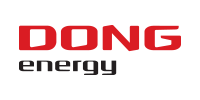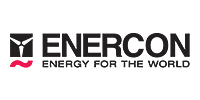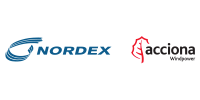14:30 - 16:00 Yes in my back yard! Maximising social acceptance
Environmental impacts & social acceptance

Room: C 2.2
The session will present various measures to support and maximise social acceptance. It will have four presentations: exploring engagement measures with local communities; research into effective involvement; real-life experience of successful approaches to social acceptance; and specific examples and case studies.
Finally, the session will conclude with WISE Power project announcing the winner of the Best Community Project Award for outstanding commitment to local people in a European wind energy project, which the winner will then present.
You attended this session?
Learning objectives
- List and explain the most appropriate measures to maximise social acceptance;
- Identify concerns and issues from local residents;
- Explain the importance of social acceptances strategies and community engagement.

Presenter

Co-authors:
Koen Broess (1) F Bart in t Groen (1) Alma Tiggelman (1) Simon Hunkin (2) Leo Subias Subias (3)
(1) DNV GL, Arnhem, The Netherlands (2) Greenovate! Europe EEIG, Brussels, Belgium (3) CIRCE, Zaragoza, Spain
Presenter's biography
Biographies are supplied directly by presenters at WindEurope Summit 2016 and are published here uneditedKoen Broess (M) did his PhD in biophysics about energy transfer, charge separation and molecular photo-protection and studied chemistry at the Wageningen University. Koen has more than 10 years of experience in project management of innovative projects, new services and business models in the energy market e.g. small wind turbines, energy storage, ancillary services, electric mobility and smart grids projects. He is involved in several European projects about small wind turbines, second use of electric vehicle batteries, developing of flywheels and smart grid related projects. On national level he was involved in several roadmaps for the Dutch government.
Abstract
Green business models and social acceptance for small and medium sized turbines
Introduction
1 Introduction
The plans of the European Commission for wind energy development by 2020, highlights a fully competitive onshore wind power with 20% penetration. One of the better opportunities to fulfil this aim is the integration of small and medium wind turbines into urban and peri-urban environments, due to the potential market. However, nowadays there are several barriers that have relegated the Small Wind Turbines (SWTs) sector to stand as a minority choice among the renewable energy options. This abstract and presentation will bring deep insight in how to create a green business case, with a high social acceptance for small and medium sized turbines.
Approach
For a European funded project, the goal is to serve a critical burst to the expansion of small wind turbines. The project aims to develop, implement and test innovative solutions and components for tackling current barriers of the technology. Three pilots for testing different solutions and different urban applications are envisaged.
To explore social awareness, an assessment questionnaire is developed for onsite use by the owners of the pilot locations with their local stakeholders, as well as for online use. The target population is essentially an urban population.
Furthermore, a business model has been developed. For fairly innovative and diverse investments, as examined here, utilizing data from several sources is essential. Thus, it is attempted to demonstrate the potential system costs for SWTs by building a techno-economic model which determines the economic attractiveness of SWTs, as well as the benefits and weaknesses.
Main body of abstract
The questionnaire is still open for respondents; up until now over 200 responses have been collected. Four main topics result from the questionnaire: personal information, awareness and attitude, wind energy and small wind turbines. Results of this questionnaire will be presented.
Deep stakeholder involvement will be identified to achieve high social acceptability for exploiting SWTs. Also aspects for introducing ‘new’ renewable energy source concepts will be discussed, with a view on competitive technologies in urban areas, and their relation to SWT´s. For example building green business cases by the integration of small wind turbines with PV systems and energy storage systems will be addressed, for higher autarkic rates or to be more self-sufficient. From these findings finally various value propositions for creating a green business cases, and measures to boost technology implementation with high social awareness will be presented, resulting in a compilation of actions to be taken to constitute SWTs as a favorable technology in urban areas.
Conclusion
Results from the questionnaire showed the following opinions of SWTs
• Not seen as good investments;
• Image of poor performance;
• Lack of awareness.
• Turbines only partly seen as cost competitive and reliable;
• Limited concern about visual impact for SWTs;
• People view prospect of SWTs in their region slightly more favourably than large turbines;
• Preference is for installation of SWTs in industrial sites and on roofs;
• Other energy solutions, e.g. Solar PV, looked upon more favourably.
Business case analyses have shown the following:
• The SWT market is less attractive than the PV market
• Policy schemes can favour different
• SWTs need financial support to be an attractive investment.
• SWTs can be used for increased autarky
Learning objectives
- How to: create social awareness, based on system approach.
- How to: place the final consumer in the centre of gravity (customer centric).
- How to: use tools and models for achieving more RES (including locally installed small wind turbines).





Follow EWEA on: